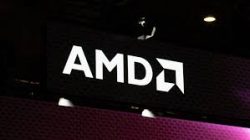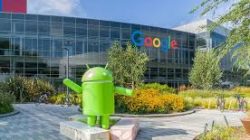Introduction to the Educated Galaxy
The term ‘educated galaxy’ serves as a metaphorical space where the boundaries of learning and knowledge are infinite. Imagine a galaxy where each star, planet, and constellation represents a different avenue for education: schools, universities, online platforms, and libraries. Just as galaxies are composed of countless celestial bodies, the educated galaxy encompasses a myriad of educational institutions and resources, all interconnected in the vast universe of knowledge.
This interstellar metaphor transforms the way we perceive the landscape of education. Schools act as foundational stars, providing essential knowledge and shaping young minds. Universities can be viewed as large, prominent planets, offering advanced education and fostering critical thinking. Meanwhile, online platforms function akin to wandering comets, bringing accessible learning opportunities to even the most remote corners of our world. Finally, libraries are the enduring constellations that preserve and disseminate timeless wisdom and literature.
The educated galaxy is not just a poetic vision; it represents the real and extensive network of learning opportunities available to individuals worldwide. Each ‘star’ in this galaxy of education not only shines with its unique luminescence but also contributes to the collective glow of interconnected knowledge across various disciplines. This system encourages continuous learning, where information is exchanged freely, and where technology further bridges gaps, making education more accessible than ever before.
Understanding the educated galaxy underscores the importance of viewing education as an interconnected ecosystem. Within this vast educational network, students, educators, and lifelong learners can navigate through an endless array of resources, gaining insights and fostering innovation. Through this metaphor, we recognize that just as galaxies expand and evolve, so too does our collective pursuit of enlightenment and excellence.
Navigating the Stars: Diverse Learning Platforms
In the expansive educated galaxy, a multitude of learning platforms act as celestial bodies, each playing a crucial role in guiding individuals through their educational journeys. Traditional educational institutions, such as schools and universities, form the foundational ‘planets’ of this galaxy. These planets have long been centerpieces, offering a structured and comprehensive education anchored in physical classrooms. They provide a systematic approach to learning, with accredited curricula, experienced educators, and tangible resources that help shape the intellectual and professional development of countless individuals. The sense of community, face-to-face interactions, and extracurricular activities further enhance the holistic development provided by these institutions.
However, as we look deeper into the educated galaxy, new stars illuminate the way for diverse and accessible learning opportunities. Emerging online platforms, including Massive Open Online Courses (MOOCs), educational apps, and e-learning websites, embody these luminous stars, revolutionizing how knowledge is disseminated. MOOCs bring expert-led courses from top universities to the global audience, breaking barriers of geography and socioeconomic status. They allow learners to delve into subjects ranging from quantum physics to creative writing, all at their own pace. Similarly, educational apps offer interactive, bite-sized learning modules that cater to various learning styles, making education more accessible and engaging, particularly for younger audiences or those seeking specific skill sets.
Furthermore, e-learning websites provide an extensive array of resources, such as video tutorials, course materials, and forums for collaborative learning. They empower self-directed learners to explore topics of interest, develop new skills, or even pivot into new careers. The convergence of these diverse platforms underscores the importance of lifelong learning in today’s rapidly evolving world. Each individual’s journey through the educated galaxy is unique, and these platforms ensure that learning is a continuous, adaptable, and personalized endeavor. Whether one prefers the structured environment of traditional institutions or the flexible nature of online learning, the educated galaxy offers a constellation of opportunities to illuminate their path.
Technological Advancements and Educational Tools
In the vast expanse of the educated galaxy, technological advancements serve as the propulsion systems that carry educational endeavors to new heights. One of the most significant innovations transforming this landscape is Artificial Intelligence (AI). AI in education offers personalized learning experiences, where algorithms analyze individual performance and tailor content to meet specific learning needs. Tools like adaptive learning platforms adjust the difficulty of tasks in real-time, ensuring optimal challenge levels that keep learners engaged. For instance, platforms such as DreamBox and Knewton exemplify this approach, using AI to provide tailored math instruction and personalized lesson plans, respectively.
Virtual Reality (VR) and Augmented Reality (AR) further push the boundaries of immersive learning. By creating simulated environments, these technologies enable learners to engage in experiential activities that would be impossible in a traditional classroom. Apps like Google Expeditions use VR to bring field trips to life, allowing students to explore historical landmarks or dive into the depths of the ocean, all within the confines of their classroom. AR applications, such as the AR Anatomy app, overlay digital information onto the real world, offering interactive experiences where complex concepts come to life, enhancing both comprehension and retention.
Gamification leverages the intrinsic motivators of game design to enhance learning. By incorporating elements like points, badges, and leaderboards, educational gaming platforms encourage engagement and competition. Tools like Kahoot! and Classcraft turn quizzes and classroom activities into interactive games, fostering a more dynamic and enthusiastic learning atmosphere. This use of gamification not only boosts engagement but also promotes collaborative and critical thinking skills.
Adaptive learning technologies work in harmony with these advancements, refining the educational experience by responding to the unique needs of each student. Systems like Smart Sparrow allow educators to create adaptive lessons that adjust in real-time, ensuring each learner receives instruction tailored to their progress. This personalization enhances the effectiveness of educational content, leading to improved learning outcomes and greater student satisfaction.
Through these technological advancements, the educated galaxy continues to expand, offering innovative tools that make learning more interactive, personalized, and effective for both learners and educators. By integrating AI, VR, AR, gamification, and adaptive learning, the future of education becomes a dynamic and ever-evolving journey.
The Future of the Educated Galaxy: Trends and Predictions
As we delve deeper into the vast domain of the educated galaxy, numerous trends emerge that will shape the future of education. One particularly promising development is the integration of blockchain technology for credentialing. This innovative approach promises a tamper-proof method of verifying academic achievements, ensuring the authenticity of diplomas and certifications. Blockchain’s transparency and security could instill a new level of trust in educational credentials, fostering a more interconnected and credible global education system.
Moreover, the rise of micro-learning modules and skill-specific certifications is particularly noteworthy. This trend caters to the modern learner’s preference for flexibility and personalization. By breaking down complex subjects into manageable, bite-sized lessons, micro-learning enables individuals to acquire specific skills that are directly relevant to their professional needs. These targeted educational experiences not only enhance practical competencies but also make learning accessible and efficient.
In addition, the increasing global connectivity augurs well for collaborative learning. Online platforms and virtual classrooms allow students and educators from diverse geographical regions to interact and collaborate. This global network fosters the exchange of knowledge and ideas, enriching the educational experience and broadening perspectives. The interconnectedness of the educated galaxy underscores the importance of cultural diversity and promotes a more inclusive approach to learning.
Amidst these promising trends, challenges remain. The rapid pace of technological advancement necessitates continuous adaptation for educators and institutions. Ensuring equitable access to these innovations, particularly in under-resourced areas, is critical. Furthermore, the reliance on digital platforms raises concerns about data privacy and cybersecurity, necessitating robust measures to protect sensitive information.
Yet, the opportunities presented within this educated galaxy are vast. Embracing innovation and evolving with these trends can transform traditional educational paradigms. The endless possibilities within the educated galaxy are a testament to the boundless potential of human ingenuity. As we stand on the cusp of this new frontier, the role of innovation remains pivotal in shaping a future where education is not only accessible but also enriching and transformative for all.







